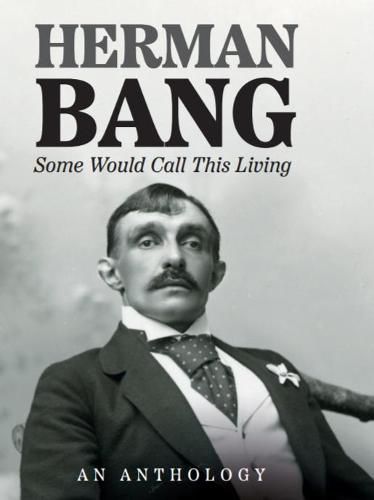Readings Newsletter
Become a Readings Member to make your shopping experience even easier.
Sign in or sign up for free!
You’re not far away from qualifying for FREE standard shipping within Australia
You’ve qualified for FREE standard shipping within Australia
The cart is loading…






This title is printed to order. This book may have been self-published. If so, we cannot guarantee the quality of the content. In the main most books will have gone through the editing process however some may not. We therefore suggest that you be aware of this before ordering this book. If in doubt check either the author or publisher’s details as we are unable to accept any returns unless they are faulty. Please contact us if you have any questions.
Herman Bang (1857-1912) was a sharp-witted observer of the society and manners of his age; with an eye for telling details, he could at one moment mercilessly puncture hypocrisy and arrogance, at the next invoke indignant sympathy for the outcasts and failures of a ruthlessly competitive world. In his novels and especially in his short stories he often takes as his protagonist an unremarkable character who might be dismissed by a casual observer as uninteresting: a failed ballet dancer who scrapes a living as a peripatetic dance teacher in outlying villages (‘Irene Holm’), or a lodging-house-keeper’s daughter who toils from dawn to dusk to make ends meet (‘Froken Caja’). He can also make wicked fun of pretensions and plots, as in ‘The Ravens’, where the family of the aging Froken Sejer are scheming to have her declared incapable, whilst she is selling off her valuables behind their backs to cheat them of their inheritance. His wide-ranging journalism has many targets, alerting readers to the wretched poverty hidden just a few steps from the thriving city shops or the ineptitude of Europe’s ruling houses - as well as celebrating the innovations of the modern age, such as the automobile or the department store.
Bang was well known throughout Europe in his lifetime, especially in Germany, where his works were translated early. In the English-speaking world he has had little impact, partly no doubt because of his homosexuality, for which he was hounded across Europe. Even now, only a couple of his novels have been translated. This volume is an attempt to remedy this lack by introducing a broad selection of his short stories and journalism to a new public.
$9.00 standard shipping within Australia
FREE standard shipping within Australia for orders over $100.00
Express & International shipping calculated at checkout
This title is printed to order. This book may have been self-published. If so, we cannot guarantee the quality of the content. In the main most books will have gone through the editing process however some may not. We therefore suggest that you be aware of this before ordering this book. If in doubt check either the author or publisher’s details as we are unable to accept any returns unless they are faulty. Please contact us if you have any questions.
Herman Bang (1857-1912) was a sharp-witted observer of the society and manners of his age; with an eye for telling details, he could at one moment mercilessly puncture hypocrisy and arrogance, at the next invoke indignant sympathy for the outcasts and failures of a ruthlessly competitive world. In his novels and especially in his short stories he often takes as his protagonist an unremarkable character who might be dismissed by a casual observer as uninteresting: a failed ballet dancer who scrapes a living as a peripatetic dance teacher in outlying villages (‘Irene Holm’), or a lodging-house-keeper’s daughter who toils from dawn to dusk to make ends meet (‘Froken Caja’). He can also make wicked fun of pretensions and plots, as in ‘The Ravens’, where the family of the aging Froken Sejer are scheming to have her declared incapable, whilst she is selling off her valuables behind their backs to cheat them of their inheritance. His wide-ranging journalism has many targets, alerting readers to the wretched poverty hidden just a few steps from the thriving city shops or the ineptitude of Europe’s ruling houses - as well as celebrating the innovations of the modern age, such as the automobile or the department store.
Bang was well known throughout Europe in his lifetime, especially in Germany, where his works were translated early. In the English-speaking world he has had little impact, partly no doubt because of his homosexuality, for which he was hounded across Europe. Even now, only a couple of his novels have been translated. This volume is an attempt to remedy this lack by introducing a broad selection of his short stories and journalism to a new public.